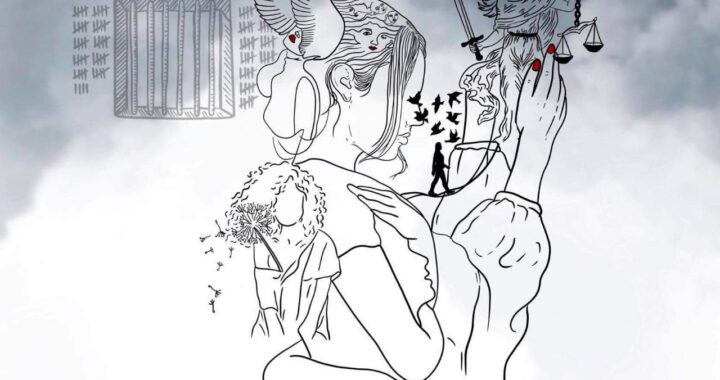When the Islamic State attacked Kobani, a Kurdish city in northern Syria, in 2014, protests against ISIS erupted in several places in Iran. No one expected the Iranian government to crack down on these demonstrations, as the Islamic Republic of Iran was a declared opponent of ISIS and had sent troops to Iraq and Syria to fight against it. However, many protesters who spoke out against ISIS were arrested, particularly in the Kurdish areas. The Iranian government considers all demonstrations that it has not organized itself to be illegal. Zohreh was arrested during a demonstration in Tehran and was held in solitary confinement for three months before being sentenced to seven years in prison for her participation in the demonstration.
Campaign against child labor
Before Zohreh was arrested, she and a group of friends worked to help vulnerable children, such as those who sell goods on the street or those who have been sentenced to death. Zohreh’s father Kamal says that his daughter has always been very caring. When she saw children on the street without a coat in the winter, she would cry. She wanted to do something for them. This led to a campaign to combat child labor and abolish the death penalty. In Iran, relatives of a victim of a fatal crime can demand that the murderer be executed. If they forgive the perpetrator, the death sentence is not carried out. Zohreh and her friends visited families who had lost loved ones in street fights, for example, and tried to convince them to forego the demand for the death penalty for the perpetrator.
Sit-in protest
In prison, Zohreh was threatened with torture, deportation, and even execution. She was forced to express regret for her participation in the demonstration and for her support of Shahin Najafi, a singer who had fled to Germany. It was as if they wanted to tear her apart with their teeth. “Don’t try to deny it. We know everything. If you work with us, we’ll help you avoid the death penalty,” the interrogators threatened. But despite the threats, Zohreh refused to confess or express regret.
After organizing a sit-in protest with other prisoners against the bloody suppression of the November 2019 demonstrations, it became quiet. No one heard anything from Zohreh anymore. Kamal inquired about his daughter everywhere, from parliament to the chief prosecutor and the highest judge. He was afraid that Zohreh would be killed. A week later, she called from prison.
Evin prison
It turned out that she had been transferred to the notorious Evin prison in the south of Tehran, where dangerous criminals are held and which everyone describes as hell. One day, some criminals attacked Zohreh and her cellmates, leaving Zohreh seriously injured. When she recovered, she went on a hunger strike in protest against the unbearable prison conditions. Kamal says she was not allowed to receive visitors. “Some nights, Mirjam and I walked around the prison to give her energy. To let her know we were by her side.”
When Zohreh was transferred again, this time to a prison 400 kilometers away, it became too difficult for her parents to make this trip every week. At first, Zohreh was allowed to call her family for 10 minutes a day, but that was temporary. Later, the family again received no information about their daughter’s fate. Nahid, Zohreh’s sister, traveled to the prison to bring her sister the things she needed. Zohreh asked her not to tell the outside world anything about her situation in prison. She didn’t want the attention on her to come at the expense of the attention for other prisoners who were sometimes worse off than Zohreh.
Zohreh supported other prisoners
In prison, Zohreh organized various cultural and social activities, but she kept this hidden from her family. Only afterwards did Nahid hear from released prisoners how her sister supported other prisoners and tried to solve their problems. Zohreh herself did not want to be known as a political prisoner. She wanted the situation of all women in Iranian prisons to improve. Once, she protested because one of her cellmates was given a contact ban and was not allowed to go on leave, while her daughter was seriously injured in an accident.
In addition, from prison, Zohreh pleaded with relatives to forgive the murderers of their family members so that the perpetrators would not receive the death penalty. She asked Nahid and her friends to visit those families and speak to them on her behalf.
Nahid talks about her mother, who is depressed about Zohreh’s situation. When Nahid listens to music, she remembers her childhood. She draws the way to the school she and Zohreh went to with her eyes closed. “Every day when I came home from school, I told my mother, ‘I’m not walking with Zohreh anymore. I’m ashamed. She talks like an adult. As if she’s the people’s lawyer.'”
Illustration above this article: Parisa Akbarzadeh Poladi

